Iran’s rial plunges past 1 million per dollar in record drop
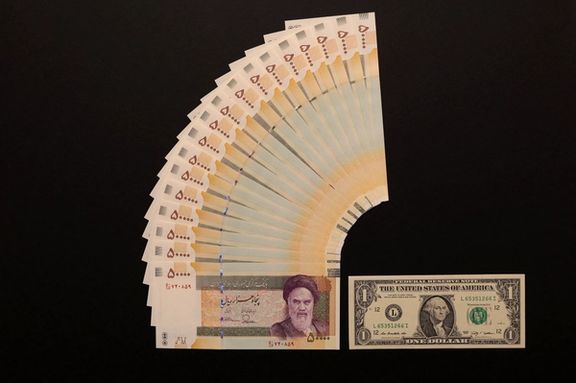
Iran’s currency hit a record low of 1,039,000 rials to the US dollar on Tuesday, as the absence of nuclear talks with the US continues to fuel economic uncertainty.

Iran’s currency hit a record low of 1,039,000 rials to the US dollar on Tuesday, as the absence of nuclear talks with the US continues to fuel economic uncertainty.
The rial has halved in value since President Masoud Pezeshkian took office in August, deepening concerns over Iran’s worsening economic outlook, amid continuing US economic sanctions and negative regional developments for Iran.
The steep decline began after Israel launched devastating attacks on Iran’s proxy, Hezbollah, in Lebanon in September, undermining Tehran’s regional influence. The election of Donald Trump, who takes a harder line on the Islamic Republic, has added to the uncertainty.
Last week, the currency dropped to one million per US dollar in Tehran, a day after Trump warned Iran of retaliation if its Houthi allies in Yemen retaliated against US airstrikes designed to weaken them.
The rial, which was valued at around 40,000 per dollar in early 2018, began to plummet after Trump withdrew from the JCPOA nuclear deal in May of that year and imposed tough economic sanctions, pushing inflation above 40%.
Prices for food and other essential goods have recently surged, with inflation in these categories estimated at 100%. As the rial continues to lose value, even higher inflation is expected in the coming months.
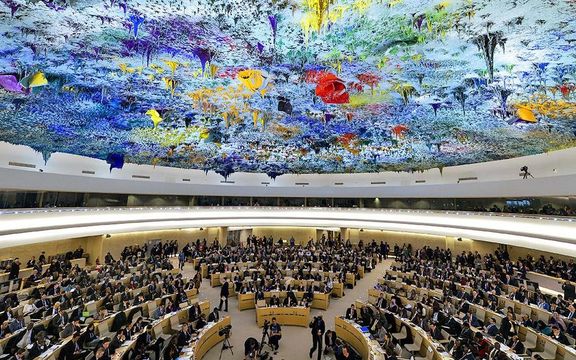
The United Nations Human Rights Council is set to vote on extending the mandates of both its fact-finding mission on Iran and its human rights rapporteur, citing ongoing and systemic human rights violations, according to a draft resolution seen by Iran International.
The resolution, expected to be voted on within 10 days, condemns systematic human rights violations in Iran and calls on the Islamic Republic to end its structural impunity for perpetrators of crimes and to fully cooperate with the UN's Special Rapporteur and the Independent International Fact-Finding Mission.
"The structural impunity that the Islamic Republic has granted to officials and agents of suppression and perpetrators of crimes against the people strengthens the chain of violence and violates the victims' right to justice," the draft resolution read.
In April 2024, the Council voted to extend the Fact-Finding Mission’s mandate for an additional year.
As per the resolution, the mandate of the UN Special Rapporteur on the situation of human rights in Iran is also expected to be extended for another year, with a focus on monitoring, documenting, and assessing Iran's progress in implementing the council’s recommendations.
The resolution, drafted by Iceland, Germany, North Macedonia, Moldova, the United Kingdom, and Northern Ireland, highlights concerns over the suppression of women, ethnic and religious minorities, and the increasing use of the death penalty.
The resolution calls on Iran to amend discriminatory laws, ensure fair trials, lift restrictions on civil society, and allow access to the country for UN human rights investigators.
The council condemns the use of capital punishment to create public fear and suppress political dissent, warning that Iran's punitive approach, including death sentences for crimes not meeting the "most serious crimes" threshold, violates international law.
The resolution also cites the suppression of freedom of expression and assembly, harassment of journalists and media workers, restrictions on human rights defenders and civil activists, and widespread discrimination against minorities as key human rights violations.
The Independent International Fact-Finding Mission, established following widespread protests in 2022, will continue to gather evidence of human rights violations related to the suppression of protests, including gender and ethnicity-based discrimination and excessive use of force.
The mission's mandate includes preparing evidence for potential future legal proceedings to hold perpetrators accountable.
The UN Human Rights Council's decision follows reports by the fact-finding mission documenting widespread human rights violations, including torture and sexual violence in prisons, which they say constitute crimes against humanity.
In a letter to UN member states earlier in March, 42 Iranian and international human rights organizations called for the renewal of the Special Rapporteur's mandate and the continuation of an independent investigative mechanism with a broad mandate to build on the fact-finding mission's work.
UN Special Rapporteur Mai Sato warned of Iran's increasing use of executions to suppress dissent, with at least 169 executions recorded in January and February alone.
"Countries should make an informed decision considering the human rights situation in the Islamic Republic," Sato said earlier in the month, expressing hope that her mandate would be extended. "There are many human rights issues in Iran that need to be monitored and addressed, and ideally, prevented."
Iran has summoned the German ambassador and British charge d'affaires over their countries' role in drafting the resolution, describing the move as provocative and irresponsible.
Iran's allies, including Venezuela, North Korea, and China, have dismissed the UN fact-finding mission as politically motivated.
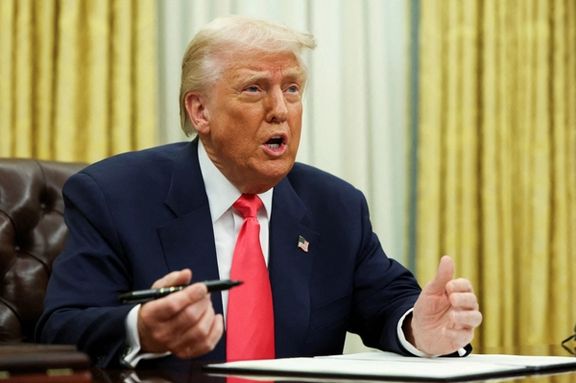
Iran's foreign minister revealed the contents of a letter from US President Trump to Supreme Leader Ali Khamenei during a call with his Iraqi counterpart, according to Iraq's foreign ministry.
Foreign Minister Abbas Araghchi “informed Mr. Fuad Hussein of the contents of a letter from US President Donald Trump addressed to the Iranian leadership, represented by the Supreme Leader Seyyed Ali Khamenei,” Iraq's foreign ministry said in a statement.
“He confirmed that the Iranian government will respond to the letter.”
Last week, an Emirati official brought a letter from Trump proposing nuclear talks with Tehran, which Supreme Leader Ali Khamenei rejected, saying such a proposal was deception from Washington amid crippling sanctions on Iran.
According to Iraq's foreign ministry, Hussein appreciated being briefed on the contents of President Trump’s letter and said he hoped that the exchange of messages would help open channels for dialogue between the two sides.

The two diplomats also discussed bilateral ties and agreed to continue communication, particularly during the sensitive phase ahead, the ministry added.
According to Axios, Trump’s letter to Khamenei included a two-month deadline for reaching a new nuclear agreement and warned of consequences if Iran expanded its nuclear program.
Iran's foreign ministry also released a readout of the call but made no mention of Trump’s letter. Instead, it focused on the escalation in Gaza and Lebanon following what it called brutal attacks by Israel, and the US military offensive in Yemen.
In part of the readout, the Iranian foreign ministry said Araghchi addressed US sanctions on Iran’s oil industry, saying the American claims and accusations aimed at pressuring Tehran were baseless.
The readout did not make any mention of Iraqi Oil Minister Hayan Abdel-Ghani who on Monday said Iranian oil tankers stopped by US forces in the Persian Gulf were using forged Iraqi documents, as Washington ramps up sanctions on Iran's oil exports as part of US President Donald Trump renewed "maximum pressure" campaign.
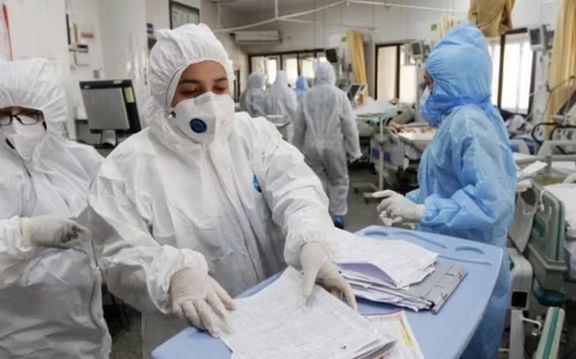
Iran’s health system faces an uphill battle filling vacancies, the country's medical regulatory body warned on Monday, citing shortages of doctors and nurses as the most pressing challenge in the year ahead.
“The three main challenges in the new year will be staffing, financing, and supplies,” the spokesman for the Iranian Medical Council Reza Laripous said, according to state-affiliated news agency ILNA .
Healthcare cannot function without trained workforce, Laripour warned, no matter how many new hospitals are built or expensive equipment brought in.
“Personnel—especially physicians and nurses—are the core users of medical resources and thebackbone of effective care,” he said.
The Iranian government strictly regulates medical fees and annually announces chargeable rates for private general practitioners, specialists, and dentists.
In early April, for instance, doctor's fees for general practitioners and specialists were set at 1.26 million rials ($20) and 1.89 million rials ($30), respectively, for the next twelve months. The medical community argues that these tariffs for medical services do not align with inflation and has strongly objected to them.
Since August, nurses in dozens of cities across Iran have been staging ongoing protests againstharsh working conditions and the government’s failure to pay wages consistently.
Laripour cited unfair tariffs, heavy workloads, and unequal resource distribution as key drivers behind dissatisfaction, leading many to leave their profession.
These pressures, he added, could push skilled staff to leave Iran or shift away from clinical work altogether.
He called for urgent government intervention, including better funding and attention to both thenumber and variety of healthcare professionals.
Without meaningful action, he said, rising inflation and poor economic planning will make it “irrational to expect effective care under current tariff structures,” leaving both providers and patients to bear the costs.
Iranian medical have repeatedly warned in the past few years about the inevitable deterioration of the healthcare system and its possible collapse if the same trends continue.
Government officials have never offered concrete figures on the number of doctors, midwives, and nurses who have left the country for better jobs in neighboring countries including the United Arab Emirates and Oman, as well as elsewhere in the world.
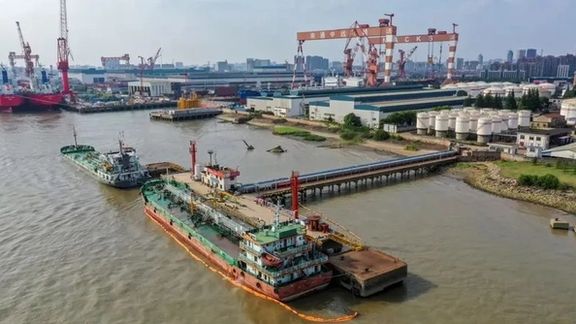
Sanctioning a Chinese refinery for buying Iranian oil is the first real sign of President Donald Trump’s “maximum pressure” on Tehran, the Wall Street Journal’s Editorial Board said on Sunday.
On March 20, the United States sanctioned Shandong Shouguang Luqing Petrochemical Co, which is known as a “teapot refinery” purchasing Iranian oil shipped by illicit methods to China in violation of US sanctions.
The WSJ said that after years of a lenient approach toward Tehran’s oil exports to China, the Trump administration finally took a step targeting the main source of Iran’s oil revenues. Chinese teapot refineries buy 90% of these exports and provide a lifeline for Tehran, which is financially strapped.
Officially, China buys almost no Iranian oil but its small refineries, not directly linked to government enterprises, unload tankers that wholly or partially carry Iranian cargoes.
“Unlike larger firms with links across the global economy, the teapots are less vulnerable to sanctions. But they tend to have links across the domestic Chinese economy. That’s what makes this move a warning to China,” the editorial said. It added that while Beijing might be willing to tolerate risk with its small refineries, it might not be ready to endanger US punitive measures against its bigger, state enterprises.
“If that’s trouble Mr. Xi could do without, he can make the business and political decision to drop Iran as a supplier. When Iran’s oil exports collapse, you’ll know the regime is feeling the heat. That’s when nuclear talks will have their best chance of success.”
President Trump last month announced the revival of his so-called maximum pressure policy toward the Islamic Republic, demanding talks to dismantle its nuclear program. Iran has responded by saying that it will not negotiate under Mr. Trump’s pressure, although it is facing serious financial pressures to a large extent brought on by US sanctions.
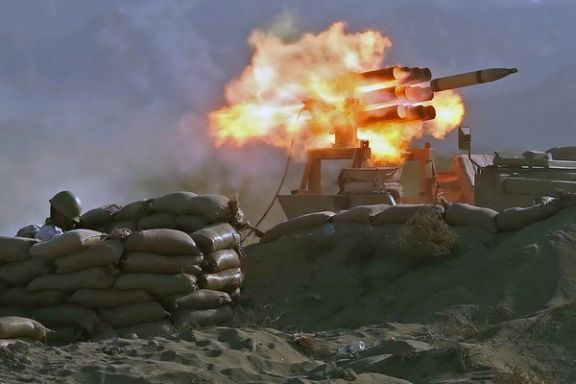
Iran's Foreign Minister Abbas Araghchi said that no nation would dare attack Iran due to its high state of military preparedness.
Speaking at a Red Crescent New Year's headquarters meeting on Monday, Araghchi said, "Our enemies are well aware of the consequences of any aggression against our territory,” emphasizing the readiness of Iran's armed forces and emergency services.
He added that this readiness acts as a deterrent, ensuring no one has the power or courage to violate Iran's borders.
"Our adversaries are fully aware of the high level of capability and readiness possessed by our armed forces, emergency services, and government. This preparedness provides us with immunity and strength, effectively deterring any potential aggression against our territory."
Elsewhere in his remarks, he affirmed that Iran rejects direct negotiations with the US, but is open to indirect talks through intermediaries.
'The Islamic Republic of Iran, under maximum pressure and the threats it faces, will definitely notenter into direct negotiations with the United States. This is our clear policy and it will continue until there is a change in the other side's approach towards the Iranian people.”
Araghchi asserted, “The current outlook is that, with the accusations being made and the unreasonable demands that are repeated daily, we will not enter into any direct negotiations with the American side.”
He added,“However, the path for indirect negotiations is open, and there are various channels through which it can be done.”
Araghchi's comments come as the United States significantly increases its naval presence in the Middle East, a move directly linked to escalating tensions with the Iran-backed Houthi rebels in Yemen.
US Defense Secretary Pete Hegseth has ordered two aircraft carrier strike groups to the region next month, a rare deployment intended to bolster US strikes against the Houthis, whose primary benefactor is Iran.
This buildup follows persistent Houthi attacks on commercial and military vessels in the Red Sea, which the group frames as a response to the Israeli war in Gaza.
The extended deployment of the USS Harry S. Truman and the expedited arrival of the USS Carl Vinson will provide US commanders with increased capacity for patrols and strikes.
The US has maintained a consistent naval presence in the Middle East, with carrier strike groups rotating through the region. This current deployment, however, marks a notable increase in firepower, potentially signaling a stronger deterrent message to Iran amidst regional tensions.
The comments also follow two aerial attacks by Israel last year which saw a major weakening of Iran's air defenses, which Iran has played down as the two countries play out their tit-for-tat attacks.